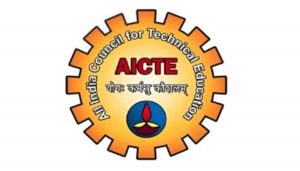World’s sharpest fiction-writers to talk about their inspirations at ZEE Jaipur Literature Festival 2019
16 JAN 2019 : As the ZEE Jaipur Literature Festival gears up for its forthcoming 12th edition (January 24th-28th, 2019, The Diggi Palace, Jaipur), all eyes are on its well-balanced programme, loaded in both style and substance. As always, top writers of fiction from across the world have bagged on slots in meaningful sessions which are widely looked forward to.
In The Underground Railroad, named after Colson Whitehead’s heart-wrenching tour de force,chronicling a young slave’s adventures as she makes a desperate bid for freedom in the antebellum South, which won the Pulitzer in 2016, the author makes his debut appearance in South Asia, in a conversation with novelist Kanishk Tharoor.
In Nigerian writer and poet Ben Okri’s most significant novel, the Man Booker-winning The Famished Road, a young woman is arrested for speaking four simple words – ‘Who is the Prisoner?’ This question resonates throughout the novel and the answer is implicit in the revelation at the heart of the story. In conversation with fellow novelist Rana Dasgupta, Okri gets to the heart of his own life and writing in The Freedom Artist.
A number of sessions have been planned on the exhaustive, and excruciatingly precise craft of the novel.
Examining the actual process of producing a great and memorable novel in The Writer at Work, are five novelists from around the world – Ahdaf Soueif, Álvaro Enrigue, Colson Whitehead, Hari Kunzru and Yann Martel – belonging across Mexico to Egypt, talking about their search for inspiration with Chandrahas Choudhury.
Five of the world’s greatest living novelists – Vikram Chandra, Sebastian Barry, Andrew Sean Greer, Tania James, and Ben Okri share their insights on the art of the novel in Where Does Fiction Come From?They explore questions like ‘What is the process of creating fiction?’ and ‘How do you make up characters and situations that are believable and why should the reader care?’
In The New York Novel, the idea of New York, the ultimate city of the displaced, where emigrants from so many different countries have converged through history, and its role as a shaper of writing destinies are discussed with writers from wildly different and much-hyphenated backgrounds — Californian-Zimbabwe, North London-Kashmiri and Illinois-Bangladeshi — NoViolet Bulawayo, Tania James and Tanwi Nandini Islam are in conversation with novelist Hari Kunzru.
Andrew Sean Greer’s lyrical but hilarious novel about a struggling writer’s romp around the world to extricate himself from an awkward wedding lampoons the literary world and won the 2018 Pulitzer Prize for fiction. Writer Anita Nair’s novelEating Wasps unravels the story of a thirty-five-year-old writer who kills herself, half a century ago. In a conversation with author Prayaag Akbar in Writing about Writing, Greer and Nair speak of the comedies and tragedies of the writing life, and what it means to be actually writing about writing and writers.
Alexander McCall Smith, among the most-loved and prolific story-tellers in the English language who has delighted readers across the world with a cross-section of novels: The No. 1 Ladies’ Detective Agency, 44 Scotland Street, The Sunday Philosophy Club, will return to the Festival to be in conversation with Festival Director William Dalrymple and discuss his life and work in Tea Time for the Traditionally Built.
Jeffrey Archer, best-selling novelist, master of the twist-in-the-tale, is the only author ever to have been number one in fiction (19 times), short stories (four times) and non-fiction (The Prison Diaries). In conversation with writer and journalist Barkha Dutt, he speaks about his extraordinary literary career and life in politics and introduces his recently-released new book, Heads You Win, a work of fiction spanning two continents and 30 years.
Evocative writer of fluid prose Anuradha Roy will be in conversation with Tishani Doshi and talk about her work, and latest novel All the Lives We Never Lived, a powerful parable of love and loss, telling the story of men and women trapped in a dangerous era uncannily similar to the present.
In the session ‘Before and After Pi’, Man Booker-winning Yann Martel, whose international bestsellerLife of Pi scaled unbelievable heights, both as a novel and as a film, talks about his writing and life before and after the life-changing success of Pi, with novelist Jerry Pinto.
Call Me by Your Name is the story of a sudden and powerful romance that blossoms between an adolescent boy and a summer guest at his parents’ cliff-side mansion on the Italian Riviera. It is a masterstroke of intimacy and sexuality, depicted in a gentle sweep across timelines, at once evocative yet unsentimental in writer André Aciman’s lucid prose, and later scripted to film by James Ivory. Aciman will talk about the making of the novel and his feelings about the adaptation with Anindita Ghosh.
Real writing, like true love, is indeed a many-splendoured thing! It comes from deep-seated psychological, ethnic, geo-political and socio-cultural contexts and often gut-wrenching experiences played out across generations. Something that is symbolized often by the idea of the Jewish novel. Questioning whether such a genre really exists or are there just individual Jewish novelists and if great writers do always transcend the cultural and religious world they come from, will be André Aciman, Ruby Wax, Simon Sebag Montefiore, Tova Reich discussing Jewishness and literature with Zachary Leader in The Jewish Novel.
What happens when a country turns on itself and the enemy becomes your next door neighbour, your former school friends, even your family? Three writers from countries violently divided by race, religion and politics, Yasmine El Rashidi from Egypt, Sebastian Barry from Ireland and Anuk Arudpragasam from Sri Lanka, discuss what happens in A House Divided: Of Fiction and Civil Wars.
While on writings across genres and geographies, the session The Storywallah: Writing Across Borders with Neelesh Misra in conversation with Amitava Kumar, also stands out with Misra being the essential ‘storywallah’, a master of narratives across platforms. In conversation with Amitava Kumar, he speaks of the many lives he inhabits, as a writer, journalist, editor, mentor, oral storyteller, rural raconteur, scriptwriter and lyricist.
In a session appropriately titled The Dharma of the Storyteller, acclaimed author Ashwin Sanghi speaks of The Bharat Series, the ‘dharma’ of the storyteller and how he brings his plots and characters to life in a conversation with Meghna Pant.
Playwright, novelist and poet Sebastian Barry, one of Ireland’s finest writers, is known for his taut literary style. While he was once considered a playwright who wrote the occasional novel, in recent years his fiction-writing has surpassed his work in theatre. In 2017, Barry was awarded the Costa Book of the Year prize for Days Without End, making him the first novelist to win the prestigious prize twice. At the Festival’s session Days Without End, he talks about his life in writing with novelist Chandrahas Choudhury.
Prominent young Kannada author Jayant Kaikini is a poet, playwright and lyricist, and his much-awarded work spans a variety of genres. He was recently honoured with the Atta Galatta-BLF Prize and the Lifetime Achievement Award Kannada for 2018. In conversation with Mahesh Rao in No Presents, Please he talks about and reads from his latest book No Presents Please: Mumbai Stories.
Markus Zusak, the masterful storyteller who gave us The Book Thief, speaks of his much-anticipated new book, Bridge of Clay, about a boy in search of a miracle which is ‘a deeply moving study of the bonds and breaks of family’. In conversation with Rana Dasgupta in the session In Search of Miracle,Zusak tells the story behind his phenomenally successful writing.
It is time then to leaf through one’s collection of fiction, novels old and new, read, unread and reread, and wait for the unfolding of the big, bold and beautiful spectacle of fiction-writing at the Zee Jaipur Literature Festival 2019.








